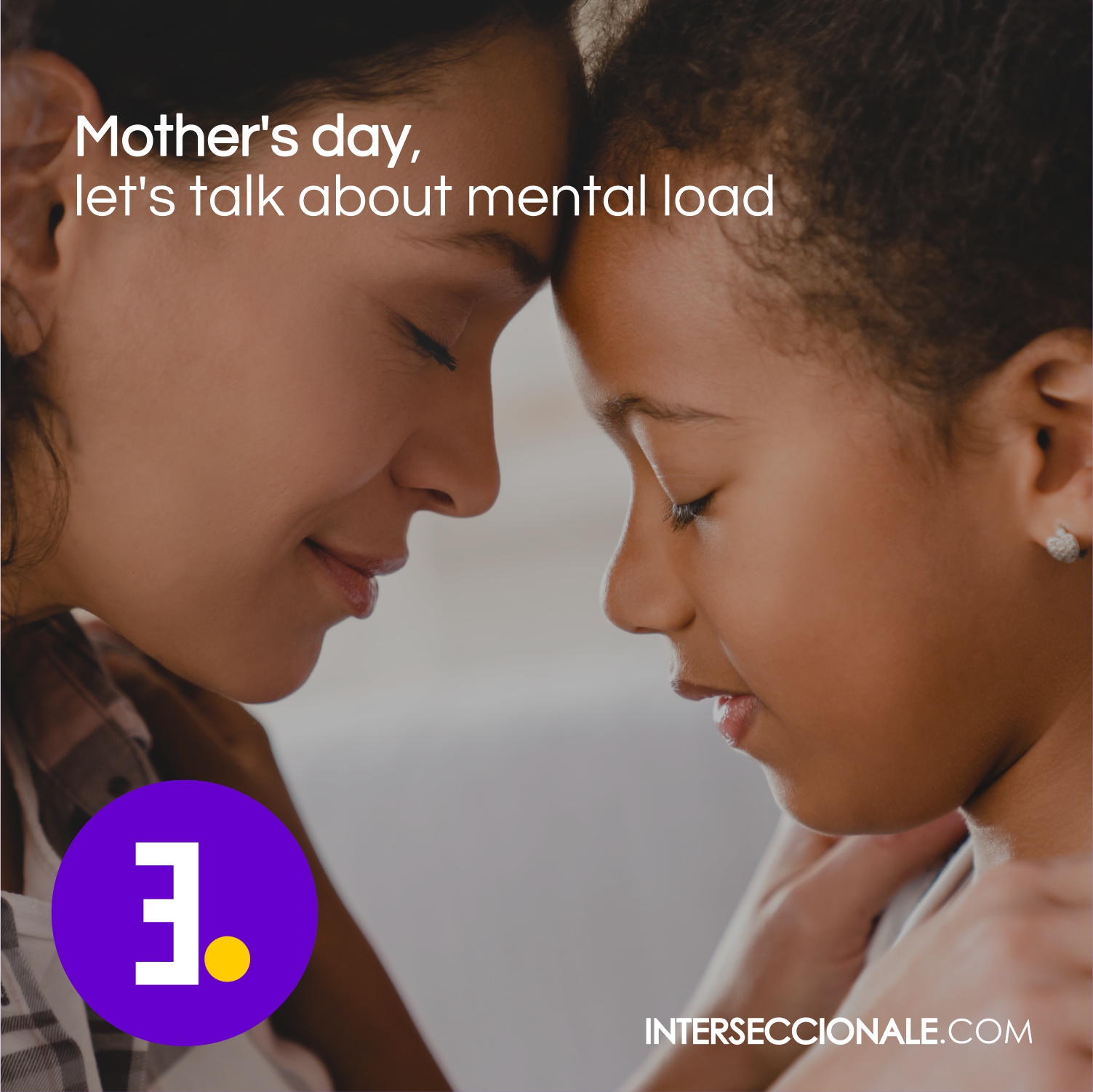The mental load of those who take care of the home, mostly women, is a reality that affects their well-being and professional development. According to a study by INEGI, women dedicate twice as much time to unpaid work in the home as men. This inequality in co-responsibility extends to the workplace, where women usually have fewer opportunities for growth and development, with the mental load being a factor that further complicates this problem.
Co-responsibility in the home is fundamental to balance unpaid workloads and to promote a more just and inclusive society. Co-responsibility not only benefits those responsible for caring for the home, but can also help create positive relationships among family members. The promotion of these types of measures also benefits organizations, as it increases the productivity and well-being of the people who are part of the company.
At Interseccionale, we believe in the importance of co-responsibility and gender equity to achieve a more inclusive and just society. We will continue to promote conversations about how our family environment also affects our access to work and promoting a culture of co-responsibility in all the environments where we operate, in order to continue co-creating inclusive work spaces that allow for professional and personal development.
#MentalLoadDay #GenderEquity #CoResponsibility #InclusiveSociety #FamilyEnvironment #ProfessionalDevelopment #PersonalDevelopment #Productivity #WellBeing #UnpaidWork #WorkplaceEquality #Intersectionality #Interseccionale #corresponsabilidad #cargamental #igualdaddegenero #trabajonoremunerado #desarrolloprofesional #bienestar #familia #relacionespositivas #productividad #empoderamiento #sociedadjusta #inclusion


Analysis on multiple dimensions and axes – including extended demographics – to understand the current state of diversity and inclusion in the organization.

Sensitization workshops allow us to deepen the process of unlearning and relearning in relation to the diversity and inclusion strategy.

Support consultancy on diversity and inclusion for committees, strategy development, policies, procedures and indicators design with an intersectional perspective.

We aim to analyze the narrative and representation of different communication pieces – internal or external – to avoid biases that perpetuate stereotypes in society.